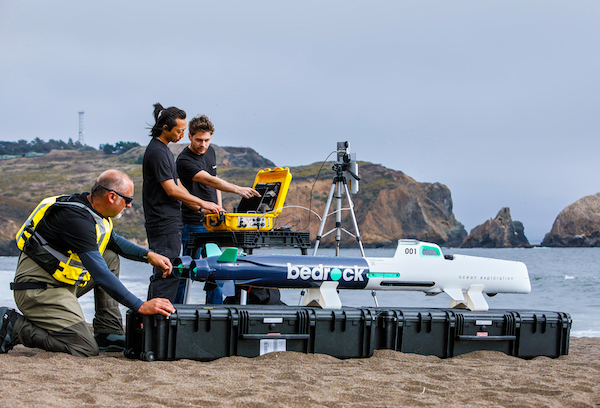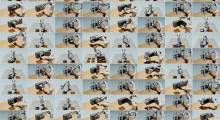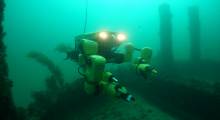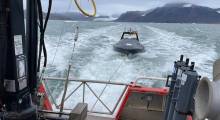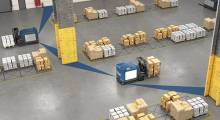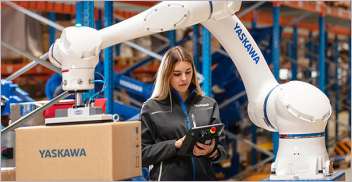Advancing technology is adding to our understanding of the oceans and opening up new energy sources. Bedrock Ocean Explorations PBC today announced that it has secured $25.5 million in Series A funding, bringing its total financing to date to $35.5 million.
The company said it plans to use the funding to bring its seafloor data offering to market this year. It also intends to develop its proprietary autonomous underwater vehicle (AUV) data-acquisition system.
“Bedrock’s mission is to accelerate ocean exploration by developing the technology needed to build the most accessible and complete ocean dataset,” stated Anthony DiMare, co-founder and CEO of Bedrock, in a press release. “Our goal is to provide accelerated innovations at sea to rapidly advance the collective understanding of oceans, remove bottlenecks in critical infrastructure projects, and provide valuable data insights necessary for stakeholders to make lower-risk and impactful decisions.”
DiMare and Charles Chiau founded Bedrock, which has offices in Brooklyn, N.Y., and Richmond, Calif., in 2020. The public benefit corporation said its AUV and Mosaic cloud data platform aim to reduce the time, environmental impact, and costs associated with seafloor exploration and mapping.
Bedrock added that its technologies will speed up the development of offshore wind energy. Over time, the company said it hopes to build the largest library of seafloor data that can be licensed to many users for much less than today's costs.
Bedrock quickly nets useful data
Today’s offshore wind energy sector faces substantial challenges because of a lack of detailed, rapidly available, up-to-date seafloor data, observed Bedrock. This lack of data in turn hinders project planning, increases construction and site risks, and slows the pace of renewable energy development, it said.
Not only can conventional oceanographic surveys run to tens of millions of dollars, Bedrock said, but deriving final data can also take up to 12 months.
“The ocean, being one of the few true planetary-scale entities, has a profound influence on our climate’s agenda and is one of Earth’s largest environmental data gaps,” said DiMare. “To effectively understand and protect it, we need a system that scales and democratizes access to ocean data and that’s exactly what we’re bringing to the offshore wind market with Bedrock.”
Bedrock said its systems effectively reduce the need for large survey ships that can have a significant negative environmental impact. They can also eliminate the long wait for critical data, the company said.
The suite of Bedrock's data-acquisition and services includes survey types such as bathymetry (shape of the seafloor), backscatter (hardness of the seafloor substrate), side scan sonar imagery (object and geological identification), magnetic (for detecting ferrous material), and coming in 2024, sub-bottom profiling data (layers beneath seafloor).
Aggregating and unifying these datasets will empower marine geophysicists and project engineers to construct detailed ground models, assess seafloor mobility, and facilitate asset inspection at every project stage, said the company. The Biden administration has recognized offshore wind energy projects as a key strategic interest and provided support through the Inflation Reduction Act (IRA).
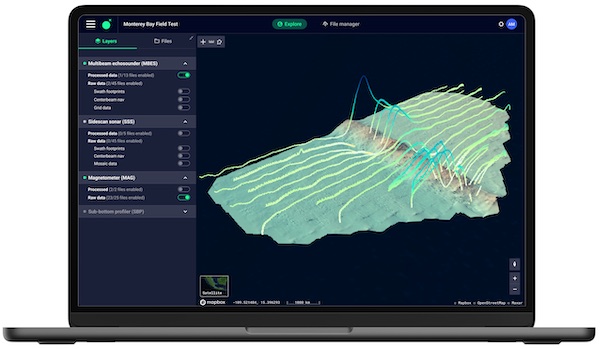
Funding to continue transformation
Northzone, a global venture capital firm, and Primary Venture Partners co-led Bedrock's latest investment round. Valor Equity Partners also participated, as did investors Eniac, Quiet Capital, and R7. Bedrock said it continues to garner support from individual and angel investors in the space.
“Bedrock’s approach to seafloor mapping and data sharing represents a transformative leap forward in ocean technology,” said Jörgen Pärson, a partner at Northzone who is also joining Bedrock's board.
“We believe Anthony and his team will enable a new age of ocean infrastructure development,” Pärson said. “Their comprehensive mapping techniques consider the delicate underwater ecosystems that often remain uncharted, without disrupting these essential habitats, marking a truly sustainable pathway to the future.”
Since closing its seed round in 2021, Bedrock said it has developed a vertically integrated AUV-based ocean mapping system. The company noted that it is “working to bring a unique multi-client model that breaks down data silos, allowing access to many more stakeholders.”
With its latest funding round, Bedrock said it will expand its AUV fleet and improve its ability to conduct ocean deployments with the goal of becoming the most accessible primary source of seafloor data for offshore wind energy projects.
Bedrock, which has 35 full-time employees, said it is growing its team internationally to amplify its hardware and software engineering and operational capabilities.
Article topics
Email Sign Up

